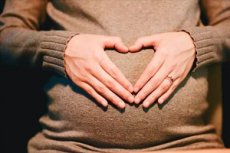New publications
What are the risks of using antiseptics during pregnancy?
Last reviewed: 29.06.2025

All iLive content is medically reviewed or fact checked to ensure as much factual accuracy as possible.
We have strict sourcing guidelines and only link to reputable media sites, academic research institutions and, whenever possible, medically peer reviewed studies. Note that the numbers in parentheses ([1], [2], etc.) are clickable links to these studies.
If you feel that any of our content is inaccurate, out-of-date, or otherwise questionable, please select it and press Ctrl + Enter.

Active use of disinfectants during pregnancy can cause such pathologies in a newborn child as eczema and bronchial asthma. This information was announced by Japanese experts representing Yamanashi University.
Antiseptics are massively used in clinics and hospitals. And the pandemic spread of cOVID-19 has multiplied their use: today, disinfectants are used almost everywhere - from stores and transportation to offices and businesses.
Doctors have previously pointed out that such widespread use of disinfectants increases the risks of dermatitis and asthma. However, studies on the effects of such solutions on women during pregnancy have not yet been conducted. Now scientists have set out to assess the possible negative effects of using disinfectants during pregnancy.
Researchers have carefully analyzed information about almost 79 thousand couples "a woman and her child", studied the probability of the relationship between the use of antiseptics by the future mother and the development of allergy-related pathologies in children.
It found that the risks of bronchial asthma or eczema were greater in babies if their mothers used antiseptic products 1-6 times a week during pregnancy. If the expectant mother used disinfectants more frequently - for example, daily - the risks of her child becoming ill were maximized: the incidence of bronchial asthma increased by 26% and eczema by almost 30% in relation to children whose mothers did not use antiseptics. At the same time, the ability of disinfectant solutions to cause the development of food allergies in infants.
Researchers have voiced several theories that could explain the increased risk of childhood allergic conditions. These include the microbiome-mediated theory (changes in the quality of skin and intestinal microflora in the expectant mother and then in the child), the immune-mediated theory (changes in the immune system of the fetus) and the postnatal theory (direct contact and inhalation of chemical agents after birth).
Thus, scientists have determined that the use of antiseptics by expectant mothers may be a factor in the subsequent occurrence of allergic conditions in infants. Given the current massive use of disinfectants to prevent viral infections and COVID-19, it is important to weigh the risks well and replace the application of disinfectants with hand washing, or significantly reduce their use. In the future, experts will consider the possibility of reducing the prenatal effects of antiseptics on offspring.
The information is published on the pages of of the BMJtitle="Prenatal occupational disinfectant exposure and childhood allergies: the Japan Environment and Childrens study | Occupational & Environmental Medicine">.
